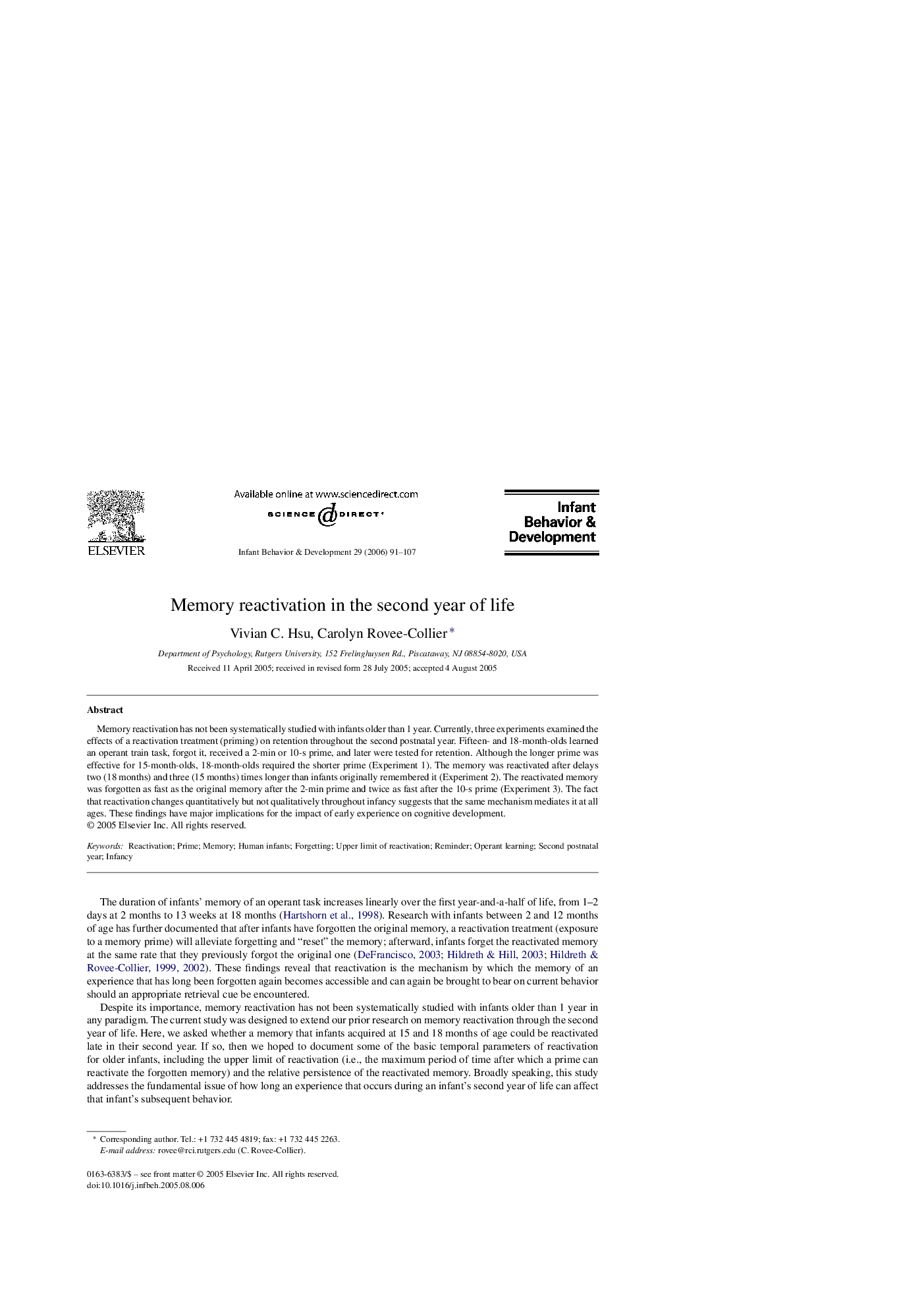| Article ID | Journal | Published Year | Pages | File Type |
|---|---|---|---|---|
| 917637 | Infant Behavior and Development | 2006 | 17 Pages |
Memory reactivation has not been systematically studied with infants older than 1 year. Currently, three experiments examined the effects of a reactivation treatment (priming) on retention throughout the second postnatal year. Fifteen- and 18-month-olds learned an operant train task, forgot it, received a 2-min or 10-s prime, and later were tested for retention. Although the longer prime was effective for 15-month-olds, 18-month-olds required the shorter prime (Experiment 1). The memory was reactivated after delays two (18 months) and three (15 months) times longer than infants originally remembered it (Experiment 2). The reactivated memory was forgotten as fast as the original memory after the 2-min prime and twice as fast after the 10-s prime (Experiment 3). The fact that reactivation changes quantitatively but not qualitatively throughout infancy suggests that the same mechanism mediates it at all ages. These findings have major implications for the impact of early experience on cognitive development.
